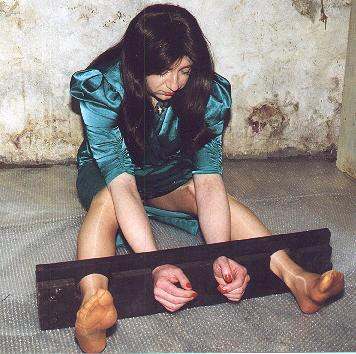Are Connecticut Judges Next?
Convicted of Bribery, Two Former Judges Report to Federal Prison
Holbrook Mohr
The Associated Press
December 28, 2007
Two former judges reported to federal prison Thursday to begin serving lengthy sentences for their roles in a judicial bribery scandal that entangled one of the state's most prominent plaintiffs attorneys.
Wes Teel, 57, surrendered to a minimum security prison camp in Atlanta to begin a nearly six-year sentence, federal prisons spokesman Mike Truman said.
John Whitfield, 45, reported to the Federal Medical Center in Lexington, Ky., for a more than nine-year sentence, Truman said. It was not clear what medical condition Whitfield has.
Paul Minor, who was convicted of bribing the judges, is already serving an 11-year sentence in a federal prison in Pensacola, Fla. The 61-year-old Minor was once considered among the top trial lawyers in Mississippi, amassing a fortune from tobacco, asbestos and other litigation.
Prosecutors say Minor orchestrated a complicated scheme in which he guaranteed loans for the judges, then used cash and third parties in an attempt to conceal the fact that Minor paid off the loans. The judges were convicted of giving Minor's clients favorable rulings in civil cases in exchange for the money.
The men were all sentenced in September, but U.S. District Judge Henry T. Wingate allowed the former judges to report to prison after Christmas so they could get their affairs in order.
Minor had violated the terms of his pretrial bond, including for alleged excessive drinking, and was already behind bars at the time of his conviction.
Minor and the former judges are appealing their convictions. They claim to be the victims of a politically charged investigation by a Republican controlled Justice Department that wanted to bring an end to Minor's financial support of Democratic candidates.
Prosecutors, however, say the jurors made a sound decision in finding the men guilty at the end of a second, three-month trial. The first trial in 2005 ended with the acquittal of Mississippi Supreme Court Justice Oliver Diaz Jr. The jurors couldn't come to a decision on some of the charges against the other defendants in that first trial and Diaz was the only one cleared of all charges. Diaz has since returned to the bench.
Copyright 2007 Associated Press. All Rights Reserved. This material may not be published, broadcast, rewritten or redistributed.
Labels: Judicial Misconduct


